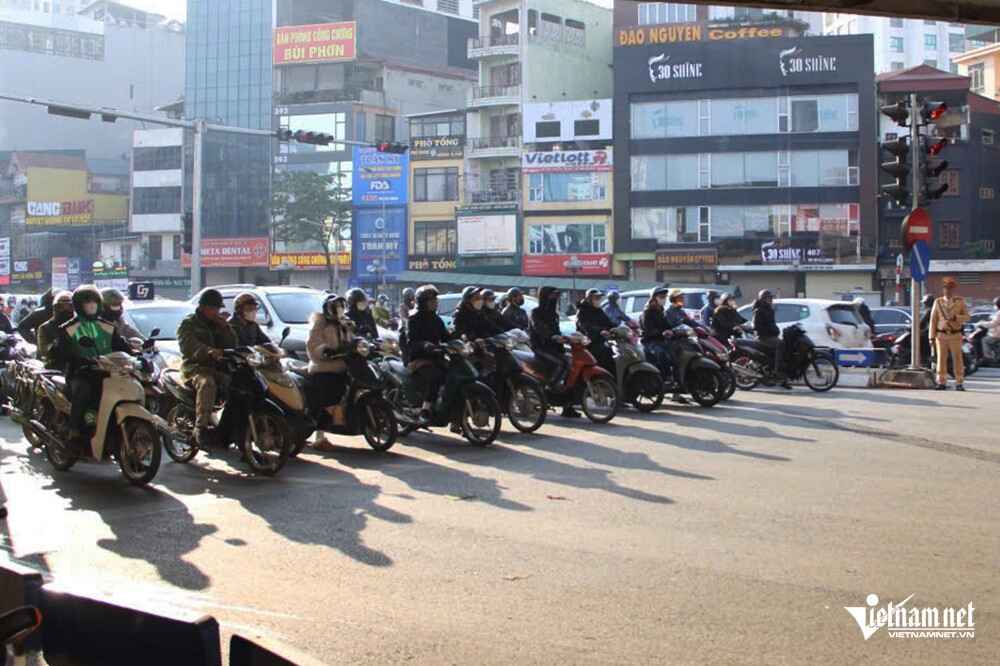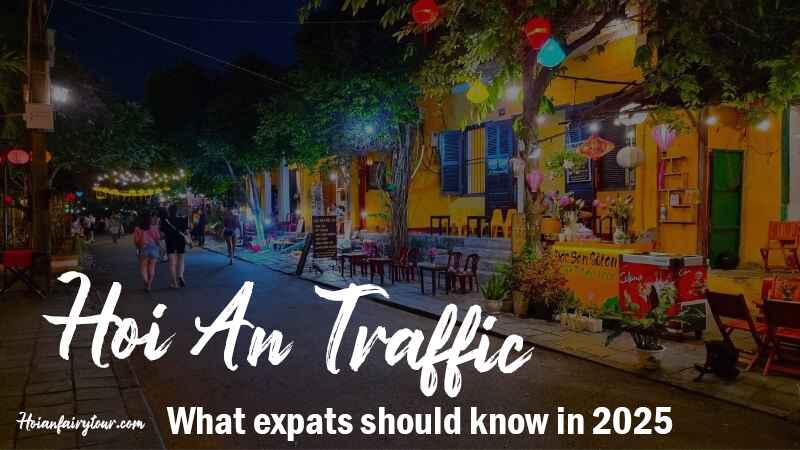As of January 1, 2025, significant changes to Vietnam’s traffic laws will impact expats and locals who drive motorbikes. These changes stem from the new Law on Road Traffic Order and Safety No. 36/2024/QH15, which was passed in 2024. If you’re an expat currently living in Vietnam or planning to move here, it’s crucial to understand how these regulations affect your ability to drive a motorbike legally. Understanding Hoi An Traffic regulations is especially important for those living or visiting the city.
Key Changes in Motorbike Licensing – Hoi An Traffic 2025
Under the new law, all motorbike drivers must hold at least an A1 driving license for two-wheeled vehicles. However, the permitted engine capacity for A1 license holders is being reduced:
- Previously, an A1 license allowed drivers to operate motorbikes up to 175cc.
- From January 1, 2025, newly issued A1 licenses will only allow motorbike operation up to 125cc.
- For motorbikes over 125cc, riders will need to obtain an A2 driving license.
- Electric bikes with a power rating under 4kW and a speed limit of ≤50 km/h will remain exempt from requiring a driving license.
For expats navigating Hoi An Traffic, these changes will influence rental and driving options in the city.
Frequently Asked Questions (FAQ)
- I have a Vietnamese A1 Driving License. Can I still ride a motorbike over 125cc?If your A1 license was issued before January 1, 2025, you can continue to ride motorbikes up to 175cc without taking a new test. However, if your license expires after this date and you renew it, your new A1 license will only allow you to operate bikes up to 125cc.If you still want to ride motorbikes with an engine capacity over 125cc, you must apply for an A2 license. Hoi An Traffic enforcement will closely monitor compliance with these new rules.
- I drive a 50cc motorbike. Do I need a license?At the moment, you do not need a license for motorbikes under 50cc. However, Decree 151/2024/ND-CP is expected to introduce a requirement for students to pass a test to operate these vehicles legally. While this may also apply to expatriates, specific details have not yet been confirmed. This could impact how Hoi An Traffic regulations apply to tourists and long-term residents.
- I drive an electric bike. What does the new law say?Electric motorbikes are regulated as follows:
- If your e-scooter has a power output ≤4kW and a speed limit of ≤50 km/h, you do not need a driving license.
- If the power output is between 4kW and 11kW, you must have an A1 driving license.
- If the power output exceeds 11kW, you must have an A2 driving license.
- I use an International Driving Permit (IDP). Do these changes affect me?If you hold an International Driving Permit (IDP), your ability to rent and operate a motorbike in Vietnam will follow the license classification on your IDP:
- If your IDP states A1, you may operate motorbikes up to 125cc.
- If your IDP states A2, you may operate any motorbike.

Higher Traffic Fines in Vietnam: Stricter Penalties by 2025
In addition to licensing changes, Decree 168, which comes into effect on January 1, 2025, introduces stricter penalties for traffic violations. The Vietnamese government aims to enhance road safety and reduce accidents by imposing higher fines and implementing a driver’s license points system. Hoi An Traffic will see increased monitoring to ensure compliance with these new laws.
Key Penalty Increases
- Running a red light in a car will result in fines increasing to 18–20 million VND ($750–$850 USD).
- Other major violations will also see substantial increases in penalties, particularly those that contribute to high accident rates.
Justification for Stricter Penalties
According to the Traffic Police Department of the Ministry of Public Security, the new decree was introduced due to the high number of traffic violations and accidents in Vietnam.
Vietnam’s road system is under pressure, with nearly 500,000 new cars and 2 million new motorcycles being registered annually. Despite efforts to improve road safety, authorities believe stronger enforcement measures are needed to curb reckless driving and ensure better compliance with traffic laws. Hoi An Traffic authorities have echoed similar concerns, emphasizing the need for safer roads in the city.
Implementation & Public Awareness
To ensure the success of Decree 168, authorities will launch public awareness campaigns and increase traffic law enforcement. The introduction of a driver’s license points system will further deter repeat offenders by leading to potential license suspensions or revocations.
With Hoi An Traffic congestion increasing, local police will also implement stricter monitoring of speed limits, helmet use, and DUI violations.
Final Thoughts
With these new regulations, it is crucial for expats living in Vietnam to stay informed and comply with the updated traffic laws. If you plan to drive a motorbike or car in Vietnam in 2025, ensure that you have the appropriate license and adhere to the new safety regulations to avoid hefty fines and legal issues. Hoi An Traffic laws will play a significant role in maintaining safety and organization on the city’s roads.
For expats seeking further clarity, The Extra Mile will continue to provide updates on driving laws, rental regulations, and compliance tips for a smooth experience on Vietnamese roads. If you regularly navigate Hoi An Traffic, staying updated on new laws will help you avoid unnecessary complications.
From Vincent – the Author
If you find this post useful and would like to show your appreciation, you can support me by making a donation via PayPal. Your generosity helps me continue creating helpful content. Thank you!
Paypal Link: [Click here]
HOI AN FAIRY TOUR – HOME – TAXI – TOUR/SHOW – BIKE/BUS/BOAT – LOCAL RECOMMENED

